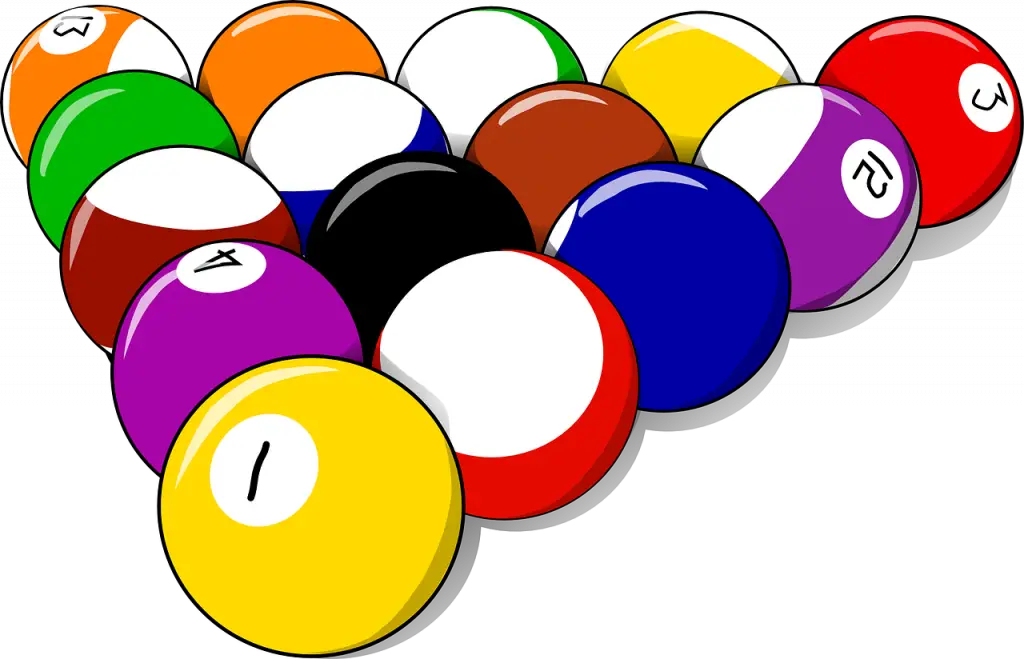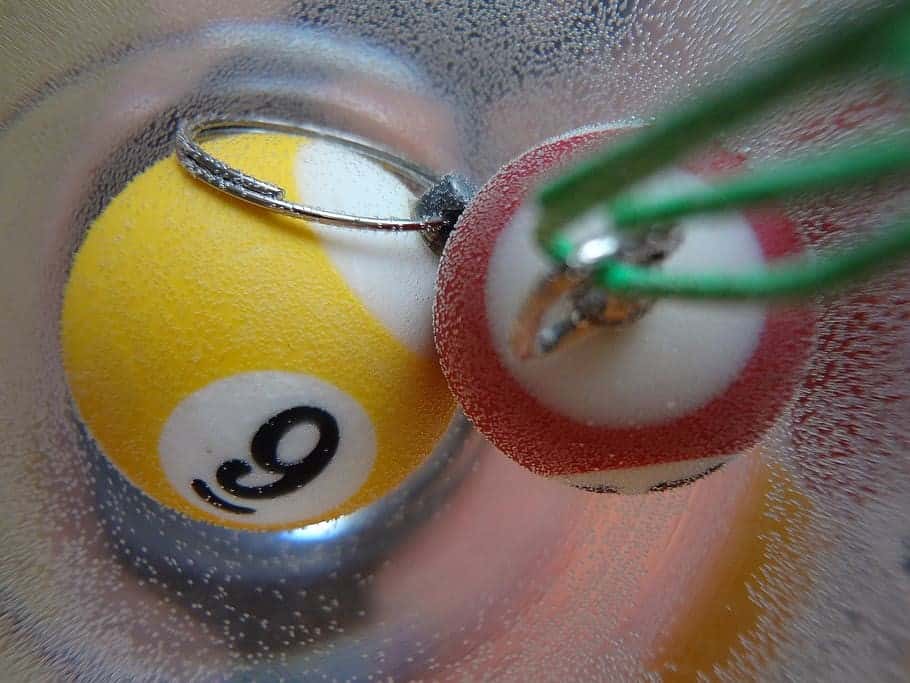Pool balls are essential components of any billiards game, and keeping them clean is crucial for optimal performance. Over time, dirt, oils, and grime can accumulate on the surface of the balls, affecting their roll, spin, and overall gameplay. Neglecting proper maintenance can lead to frustrating inconsistencies during your games. This article will guide you through the best methods and products for cleaning your pool balls effectively.
Whether you're a casual player or a professional, maintaining your pool balls ensures they last longer and perform better. In this comprehensive guide, we will cover everything you need to know about what to clean pool balls with, including step-by-step instructions, recommended cleaning agents, and tips to keep your balls in top condition.
By the end of this article, you'll have a clear understanding of how to clean pool balls properly and avoid common mistakes that could damage them. Let's dive in!
Read also:Gracie Bon Videos The Ultimate Guide To Her Journey Content And Impact
Table of Contents
- The Importance of Cleaning Pool Balls
- What Materials to Use for Cleaning Pool Balls
- Effective Methods to Clean Pool Balls
- Recommended Cleaning Products
- How Often Should You Clean Pool Balls?
- Are Biodegradable Cleaners Safe for Pool Balls?
- Common Mistakes to Avoid When Cleaning Pool Balls
- Maintenance Tips for Pool Balls
- Frequently Asked Questions
- Conclusion
The Importance of Cleaning Pool Balls
Pool balls are made from durable materials like phenolic resin or polyester, but they are not immune to wear and tear. Over time, the constant contact with pool cues, chalk, and table surfaces can leave behind residues that affect their performance. Dirty pool balls can cause unpredictable spins, slower rolls, and even damage to the table's cloth. Regular cleaning is essential to maintain the integrity and performance of your pool balls.
Impact of Dirty Pool Balls on Gameplay
When pool balls are dirty, they may not roll smoothly or behave as expected. This can lead to missed shots, inconsistent speed, and frustration during gameplay. Additionally, dirty balls can transfer grease and dirt onto the pool table's surface, leading to further issues such as premature wear of the felt.
What Materials to Use for Cleaning Pool Balls
Choosing the right materials is crucial for effectively cleaning your pool balls without causing damage. Below is a list of items you'll need:
- Mild soap or specialized pool ball cleaner
- Warm water
- A soft cloth or microfiber towel
- Gloves (optional, but recommended to protect your hands)
Why Avoid Harsh Chemicals?
Using harsh chemicals or abrasive materials can scratch the surface of your pool balls, leading to permanent damage. Phenolic resin balls, in particular, are highly durable but can still be affected by improper cleaning methods. Stick to gentle cleaning agents to preserve the quality of your balls.
Effective Methods to Clean Pool Balls
There are several methods you can use to clean your pool balls effectively. Below, we'll outline the most popular techniques:
Method 1: Hand Washing
Hand washing is a simple and effective way to clean pool balls. Follow these steps:
Read also:Scarlett Gartmann The Rising Star In Hollywood
- Fill a basin or sink with warm water and add a few drops of mild soap.
- Gently scrub each ball with a soft cloth, ensuring you reach all surfaces.
- Rinse the balls thoroughly with clean water.
- Dry them with a microfiber towel to prevent water spots.
Method 2: Using a Pool Ball Cleaner
Specialized pool ball cleaners are designed to remove dirt and grime without damaging the surface of the balls. Simply spray the cleaner onto each ball and wipe it clean with a soft cloth. This method is quick and efficient, making it ideal for regular maintenance.
Recommended Cleaning Products
When it comes to cleaning pool balls, using the right products can make a significant difference. Here are some of the best options available:
1. Pool Ball Cleaner Spray
These sprays are formulated specifically for pool balls and are safe to use on all types of materials. They effectively remove dirt, oils, and chalk residue without leaving behind any residue.
2. Mild Dish Soap
A gentle dish soap is an affordable and effective alternative to specialized cleaners. Ensure the soap is free of abrasive chemicals to avoid damaging the balls.
3. Microfiber Cloths
Microfiber cloths are ideal for cleaning pool balls as they are soft and lint-free. They effectively remove dirt without scratching the surface of the balls.
How Often Should You Clean Pool Balls?
The frequency of cleaning your pool balls depends on how often you play and the environment in which you store them. As a general rule, it's recommended to clean your pool balls at least once a month. However, if you notice visible dirt or grime, it's best to clean them immediately to prevent buildup.
Factors Affecting Cleaning Frequency
- Frequency of use
- Storage conditions (e.g., humidity, dust)
- Quality of the pool balls
Are Biodegradable Cleaners Safe for Pool Balls?
Biodegradable cleaners are an eco-friendly option for cleaning pool balls. Many of these products are safe to use and just as effective as traditional cleaners. However, it's important to check the label to ensure the cleaner is compatible with the material of your pool balls. Always perform a spot test on a small area before cleaning the entire set.
Benefits of Using Biodegradable Cleaners
- Environmentally friendly
- Free of harsh chemicals
- Safe for sensitive skin
Common Mistakes to Avoid When Cleaning Pool Balls
While cleaning your pool balls may seem straightforward, there are some common mistakes that can lead to damage or ineffective cleaning. Here are a few to watch out for:
Mistake 1: Using Abrasive Materials
Abrasive materials like steel wool or rough cloths can scratch the surface of your pool balls, causing permanent damage. Stick to soft cloths and microfiber towels for safe cleaning.
Mistake 2: Overusing Cleaning Agents
Using too much soap or cleaner can leave behind residues that attract more dirt. Always rinse your pool balls thoroughly after cleaning to remove any excess product.
Mistake 3: Ignoring Storage Conditions
Proper storage is just as important as cleaning. Keep your pool balls in a dry, dust-free environment to minimize the need for frequent cleaning.
Maintenance Tips for Pool Balls
In addition to regular cleaning, there are several maintenance tips you can follow to extend the life of your pool balls:
Tip 1: Handle with Care
Avoid dropping or throwing your pool balls, as this can cause chips or cracks. Always handle them gently to maintain their shape and appearance.
Tip 2: Regular Inspections
Periodically inspect your pool balls for signs of wear and tear. If you notice any scratches or imperfections, consider having them professionally refinished.
Tip 3: Proper Storage
Store your pool balls in a protective case or container to shield them from dust and moisture. This will help keep them clean and in good condition for longer.
Frequently Asked Questions
Q1: Can I use vinegar to clean pool balls?
While vinegar is a natural cleaner, it may not be the best option for pool balls. Its acidity can potentially damage the surface of the balls over time. Stick to mild soaps or specialized cleaners for best results.
Q2: How do I remove stubborn stains from pool balls?
For stubborn stains, you can try using a specialized pool ball cleaner or gently scrubbing the affected area with a soft cloth and warm soapy water. Be sure to rinse thoroughly and dry completely afterward.
Q3: Can I clean pool balls with a dishwasher?
No, cleaning pool balls in a dishwasher is not recommended. The high heat and harsh detergents can damage the surface of the balls and cause discoloration.
Conclusion
Cleaning your pool balls is an essential part of maintaining their performance and longevity. By using the right materials, methods, and products, you can ensure your pool balls remain in top condition for years to come. Remember to clean them regularly, handle them with care, and store them properly to maximize their lifespan.
We hope this guide has provided you with valuable insights into what to clean pool balls with and how to maintain them effectively. If you have any questions or additional tips, feel free to leave a comment below. Don't forget to share this article with fellow pool enthusiasts and explore more content on our site!


